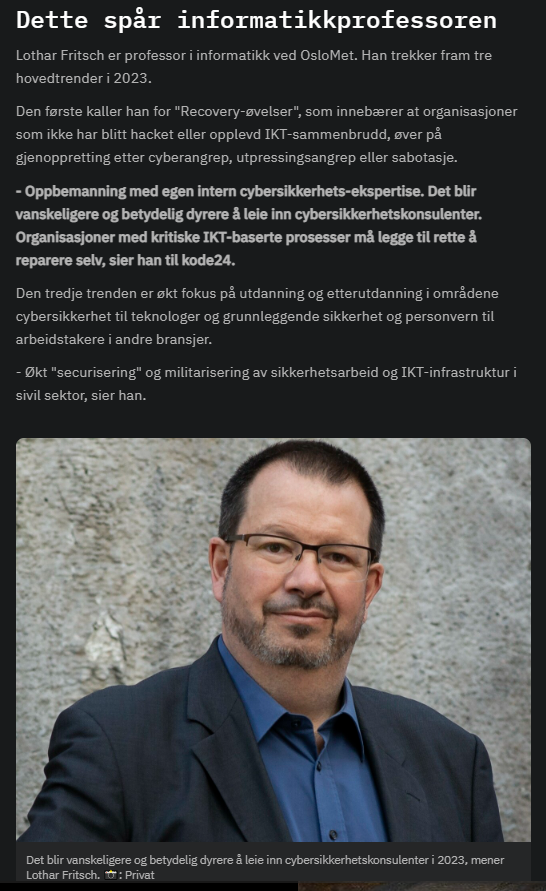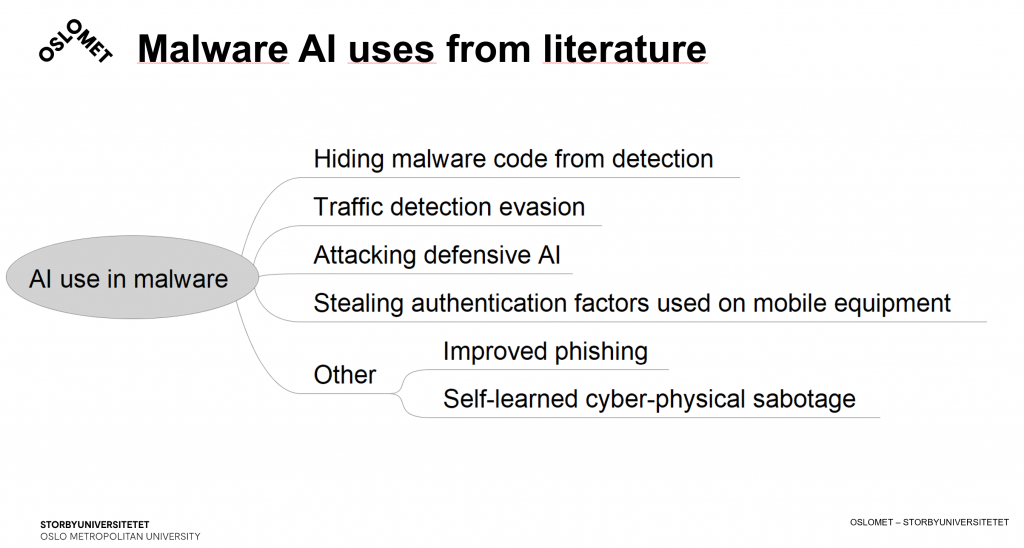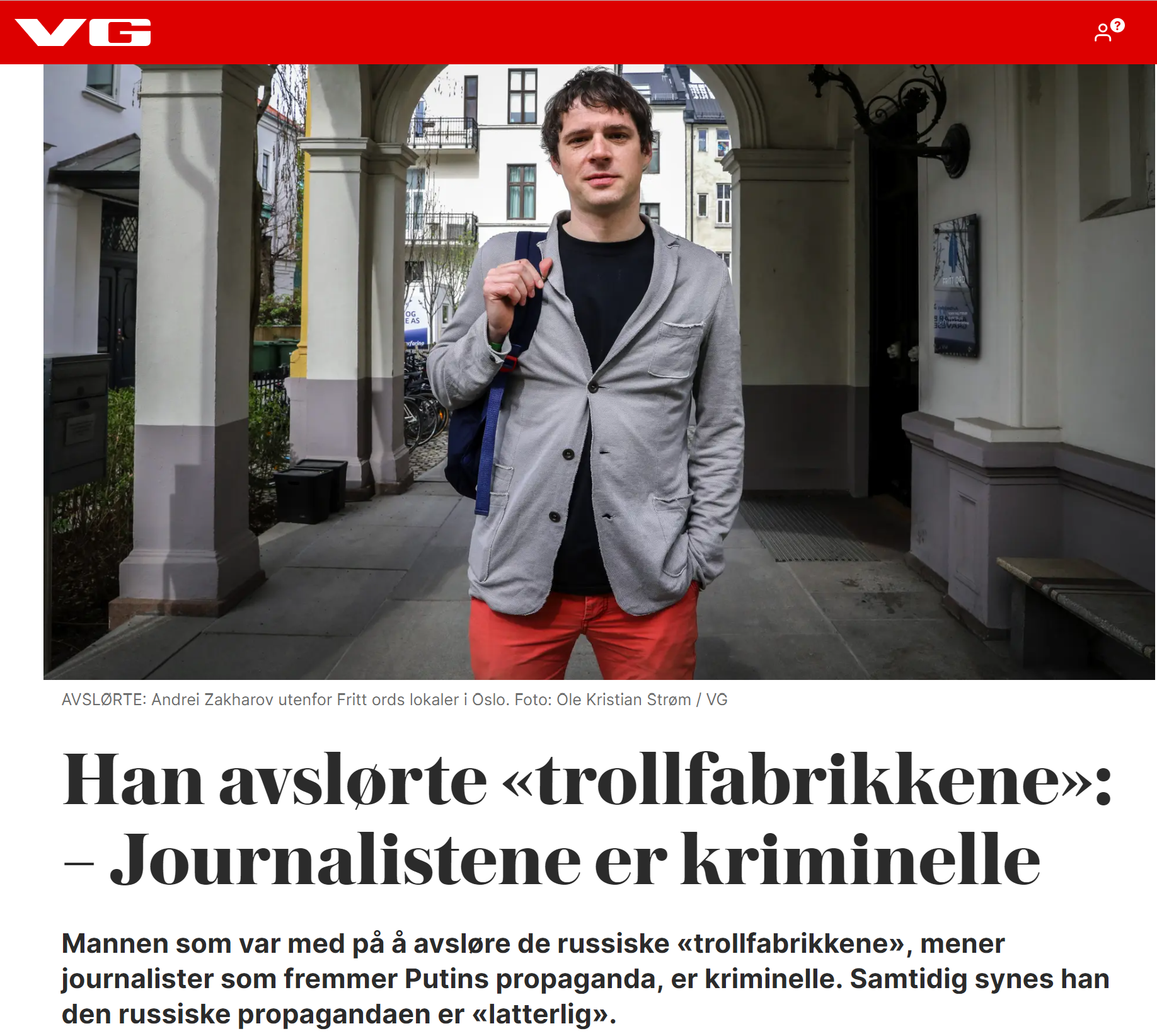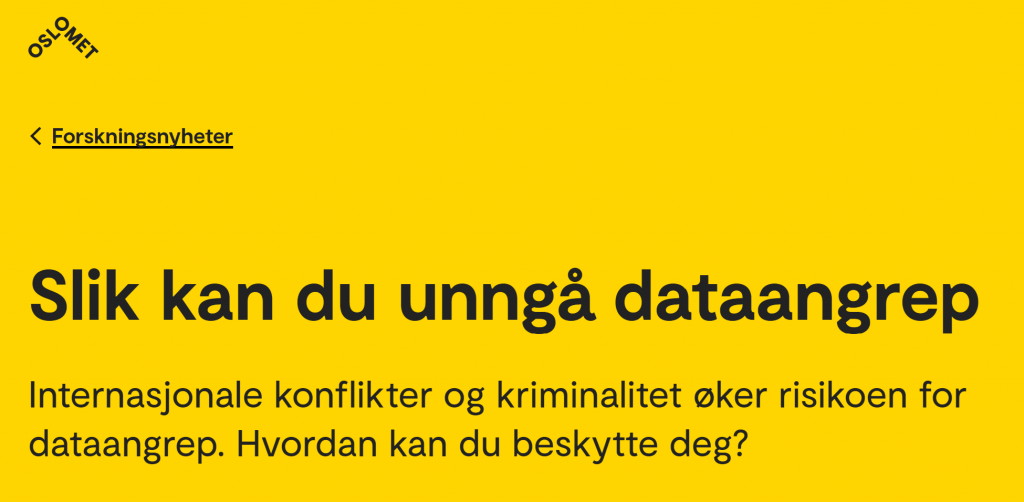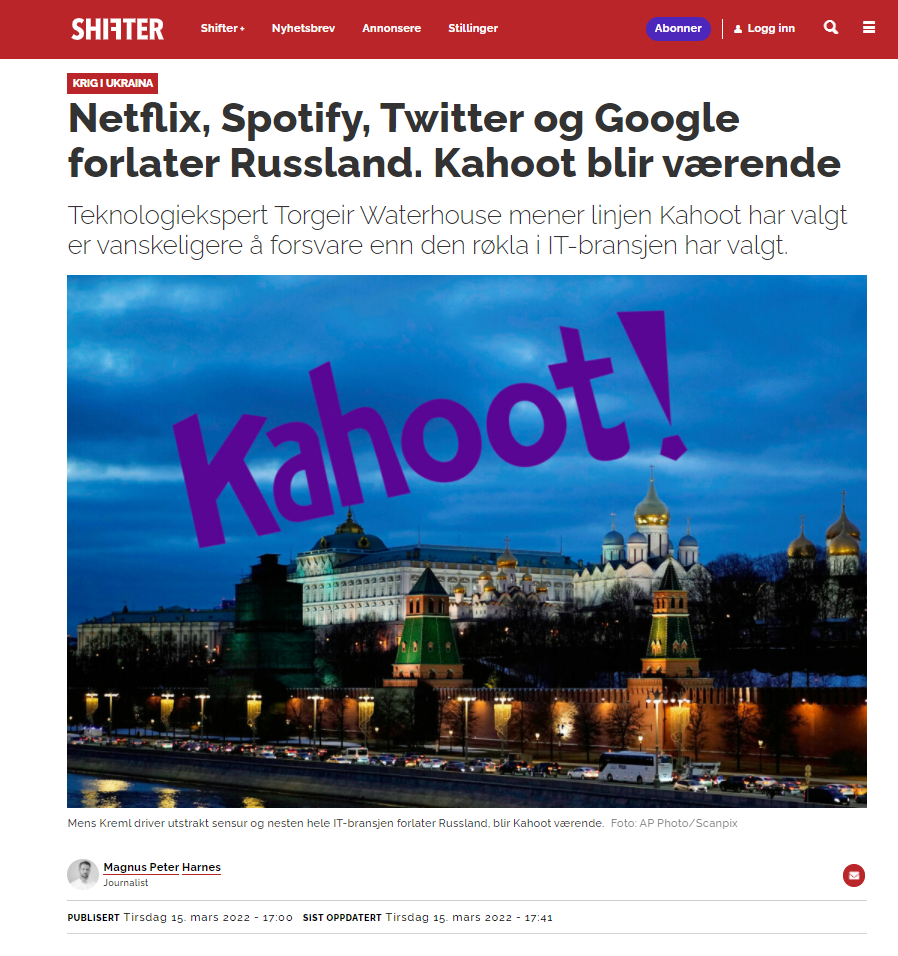Invitation to public Nordstar security seminar @OsloMET:
Jaap Henk Hoepman: Privacy Is Hard and Seven Other Myths
Date: May 9th, 2022 14:00-15:30, OsloMET, PIlestredet 35, building P35, room PI447
Abstract:
In this talk Jaap-Henk Hoepman will discuss some of the myths surrounding privacy (like “I have nothing to hide” and “We are not collecting personal data” or “You have zero privacy anyway. Get over it.”). All to show that technological developments have had a tremendous impact on our privacy, but also can be used to protect our privacy. He will talk about the legal protection of privacy through the General Data Protection Regulation (GDPR) and discuss how relying on purely legal measures is not enough. The systems themselves should be designed in a privacy friendly manner, through privacy by design. He will explain the privacy by design philosophy, and make it concrete by describing eight privacy design strategies.
Speaker biography: Jaap-Henk Hoepman is Associate professor, Dept. of Computer Science, Radboud University, Nijmegen, The Netherlands., Associate professor, IT Law, Faculty of Law, University of Groningen, The Netherlands and currently a guest professor, with PRISEC – Privacy And Security, Karlstad University, Sweden.
His research interests focus on privacy by design, and privacy friendly protocols for identity management and the Internet of Things. He published the text book “Privacy Is Hard and Seven Other Myths: Achieving Privacy through Careful Design”.
Contact: http://www.cs.ru.nl/~jhh/about.html
Date: May 9th, 2022 14:00-15:30, OsloMET, PIlestredet 35, building P35, room PI447
Location: Oslo Metropolitan University (OsloMET), Oslo, Campus Pilestredet, Pilestredet 35, Building P35, Lecture hall PI447 (Entrance from Holbergs gate, use elevator next to the multi-floor indoor climbing wall in P35 entrance hall, turn right when exiting elevator on 4th floor.)
Closest stop for public transport: Tram stop Holbergs plass.
This talk is presented with Professor Audun Jøsang’s University of Oslo’s AF Security seminar series.
Nordstar security seminar series
In the Nordstar security activity, OsloMET’s researchers investigate issues of security, privacy and trust in artificial intelligence. The seminar series presents scientific speakers who throughout 2022 will talk about topics related to federated learning, information privacy and artificial intelligence.
Nordic Centre for Sustainable and Trustworthy Artificial Intelligence Research (NordSTAR) is a Centre of Research Excellence in modern Artificial Intelligence (AI). The centre aims to establish a new paradigm in AI basic research, so-called sustainable and trustworthy AI. The main goal of NordSTAR is to develop AI tools, which embed all key aspects related with trustworthiness and sustainability. To do this the centre has established five research areas: Security, safety and reliability, Human factors in AI, and Quantum AI.
The centre is led by Pedro Lind and Anis Yazidi. It is part of the OsloMet AI Lab and Applied Artificial Intelligence. The security seminar series is organized by Lothar Fritsch and Hårek Haugerud.
